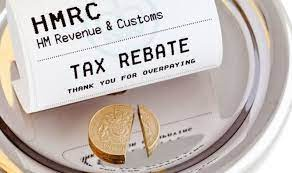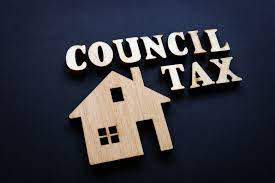
A tax refund refers to the amount you get back from the government because your paid taxes exceeded your computed tax burden.
As a result, many people need an efficient tax refund generator that can help them get their taxes paid without any problems or hassles. But with this article, you will learn how to get your taxes done efficiently and accurately.
What Is a Tax Rebate and How Does It Work?
The term “tax rebate” refers to the amount of money you get from the government because you have paid more taxes than your total tax obligation.
You must have paid tax throughout the year to understand the tax refund. You’ll get tax relief depending on how much money you’ve spent and at what rate you’re paying taxes. For example, it is possible to receive £12 in tax relief for every £60 you spend and pay tax at a rate of 20 percent in that year. You may be required to maintain records of your expenditures in order to submit specific claims.
In addition, tax refunds are being sent automatically, and HMRC reimburses overpayment taxes in various ways, including automatically and via the refund application procedure in certain cases.
How Long Does a Tax Rebate Take to Arrive?
The tax rebate is a four tax years payment taken out of your taxes. The government gives you £100 every month after filing your taxes, and you can use that money to pay off debts, buy a new car or pay off student loans.
Tax refunds in the United Kingdom may take up to 12 weeks to be processed by HMRC, with an additional 5 days to 5 weeks to be received by the taxpayer. There are various reasons why you may be entitled to a tax refund or tax rebate from the HM Revenue and Customs.
The government has an excellent reputation for paying its taxes. However, many people are unaware of the time and effort to get their tax rebates. The government pays your taxes as soon as they receive your return. You have to submit your tax return by a specific date to get the rebate. This is called the due date. If you do not submit it on time, you will be charged an administrative fee of 5%.
The government will send a letter to your address within 15 days of receiving your return. You will get an email with further instructions on how to submit it online or by post at the address specified in this letter. If you do not follow these instructions, they may charge you administrative fees or even take some of your money back!
How Long Does It Take To Receive Your Tax Refund?
The tax refund is a substantial financial benefit for many people. In the UK, it is estimated that over one million people receive their income tax refund every year. The process can take anywhere depending on how complicated your tax return is and how big your refund is.
Once your tax refund has been approved, the time it takes for your HMRC reimbursement to be provided is often relatively quick with tax refund status; however, the amount of time it takes for your tax rebate to be granted by a tax professional depends on how you will be paid.
The manner in which you submit your tax return will significantly impact when you get your refund. The most suitable method to get your refund by direct deposit is to e-file your return and have it processed immediately by your individual income tax.
FAQ
Are tax rebates taking longer?
Answer: Most tax refund requests take far longer to process than HMRC’s average turnaround time of eight to twelve weeks, depending on your circumstances. Because of the Coronavirus, there’s a straightforward explanation for why this is happening. Since the implementation of COVID-19, the workload of HMRC has risen at an exponential pace.
Can I track my tax refund online in the online UK?
Answer: If you file your taxes online, you may check the status of your tax refund on the gov. UK website. This might include income from current or prior work, pension payments, redundancy benefits, or a self-assessment tax return, among other things.
Conclusion
Anyone who files income taxes in the UK can use the best tax refund calculator available from the internet or UK and international versions. It allows you to calculate your tax refund amount and the payment schedule.
The tax return is a document that must be filed to claim a refund. The law requires tax returns, and when you file your return, it is pretty important to pay attention to the details.














